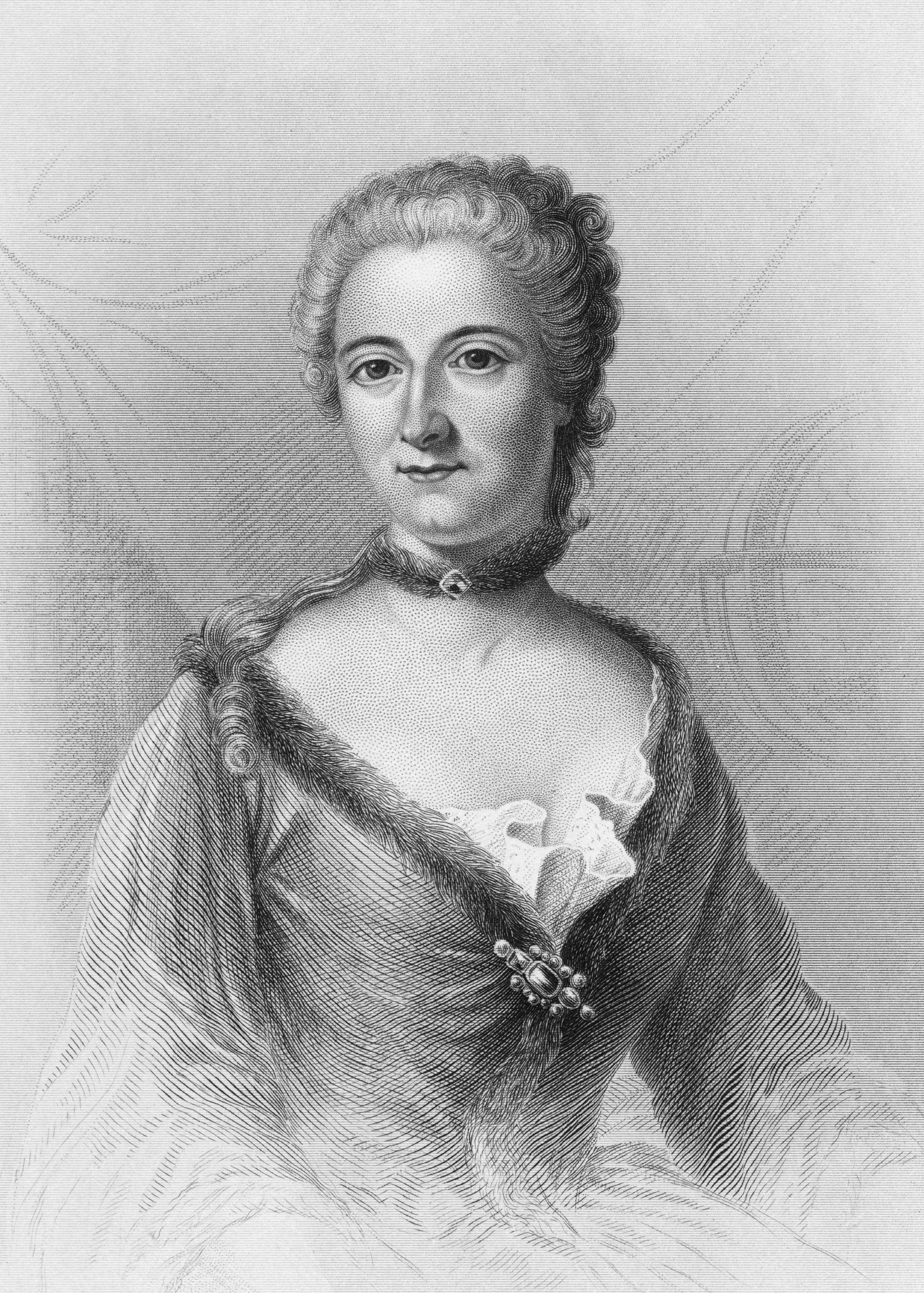Google celebrates 315th birthday of French physicist Émilie du Châtelet
Du Châtelet helped popularize Newtonian physics in France.

Google is celebrating the 315th birthday of Émilie du Châtelet, who was a physicist, translator, philosopher despite the exclusion of women from physics at the time.
Du Châtelet's most influential book was her anonymously published 1740 text, "The Foundations of Physics," which built on Isaac Newton's work. She also completed a translation of his "Principia," in which Newton outlines the laws of gravity and motion, shortly before her death in 1749; in her version, she not only translated Newton's text into French but also expanded on the math he provided.
Du Châtelet has been credited for popularizing Newton's ideas in France and beyond; in particular, her work took Newton's work on gravity and focused on what might cause gravity to work on the scale of planets and how such a force might have originated, according to one analysis of her legacy. Google celebrated du Châtelet's work with a Google doodle depicting the scientist at work with mathematical instruments.
Related: 20 trailblazing women in astronomy and astrophysics
Du Châtelet was born in 1706; her father, an official in the court of the French "Sun King" Louis XIV supported her education in fields ranging from Latin literature to the math and philosophy that would underpin her later work.
This education is representative of her career: Because of the sexism built into scientific institutions at the time, du Châtelet's ability to do science relied on both her high social status and the endorsement of the men in her life, one historian wrote.
Du Châtelet married the Marquis Florent-Claude de Châtelet-Lomont in 1725, becoming, officially, Gabrielle-Émilie Le Tonnelier de Breteuil, Marquise du Châtelet; the marquis was a military officer who was often traveling, but according to Google's description of the doodle, the library of his estate included 21,000 books.
Breaking space news, the latest updates on rocket launches, skywatching events and more!
However, du Châtelet's own work is often overlooked to highlight her affair with the famous French philosopher Voltaire, who lived with her at the estate for many years. But the relationship was also an intellectual collaboration — Voltaire, too, was interested in Newton's work, although the pair sparred over approaches to his ideas and the questions they left behind.
Du Châtelet's work was conducted nearly exclusively outside of the key scientific institution of France at the time, the Académie des Sciences, which only permitted men to attend its meetings, one analysis noted. Instead, she worked with her social connections, which stretched far beyond Voltaire and included several key figures in math, philosophy and other related fields.
Two key features of du Châtelet's work were her mathematical expertise and her incorporation of the philosophical work of the German philosopher Gottfried Leibniz, according to one analysis of her career. Less than half of "Foundations of Physics" is focused on what we would recognize as Newtonian physics; other topics include the nature of knowledge and time.
In the introduction to "Foundations of Physics," du Châtelet describes her work herself. "Physics is an immense building that surpasses the powers of a single person," she wrote. "Some lay a stone there, while others build whole wings, but all must work on the solid foundations that have been laid for this edifice in the last century, by means of geometry and observations; still others survey the plan of the building, and I, among them."
Email Meghan Bartels at mbartels@space.com or follow her on Twitter @meghanbartels. Follow us on Twitter @Spacedotcom and on Facebook.

Meghan is a senior writer at Space.com and has more than five years' experience as a science journalist based in New York City. She joined Space.com in July 2018, with previous writing published in outlets including Newsweek and Audubon. Meghan earned an MA in science journalism from New York University and a BA in classics from Georgetown University, and in her free time she enjoys reading and visiting museums. Follow her on Twitter at @meghanbartels.

